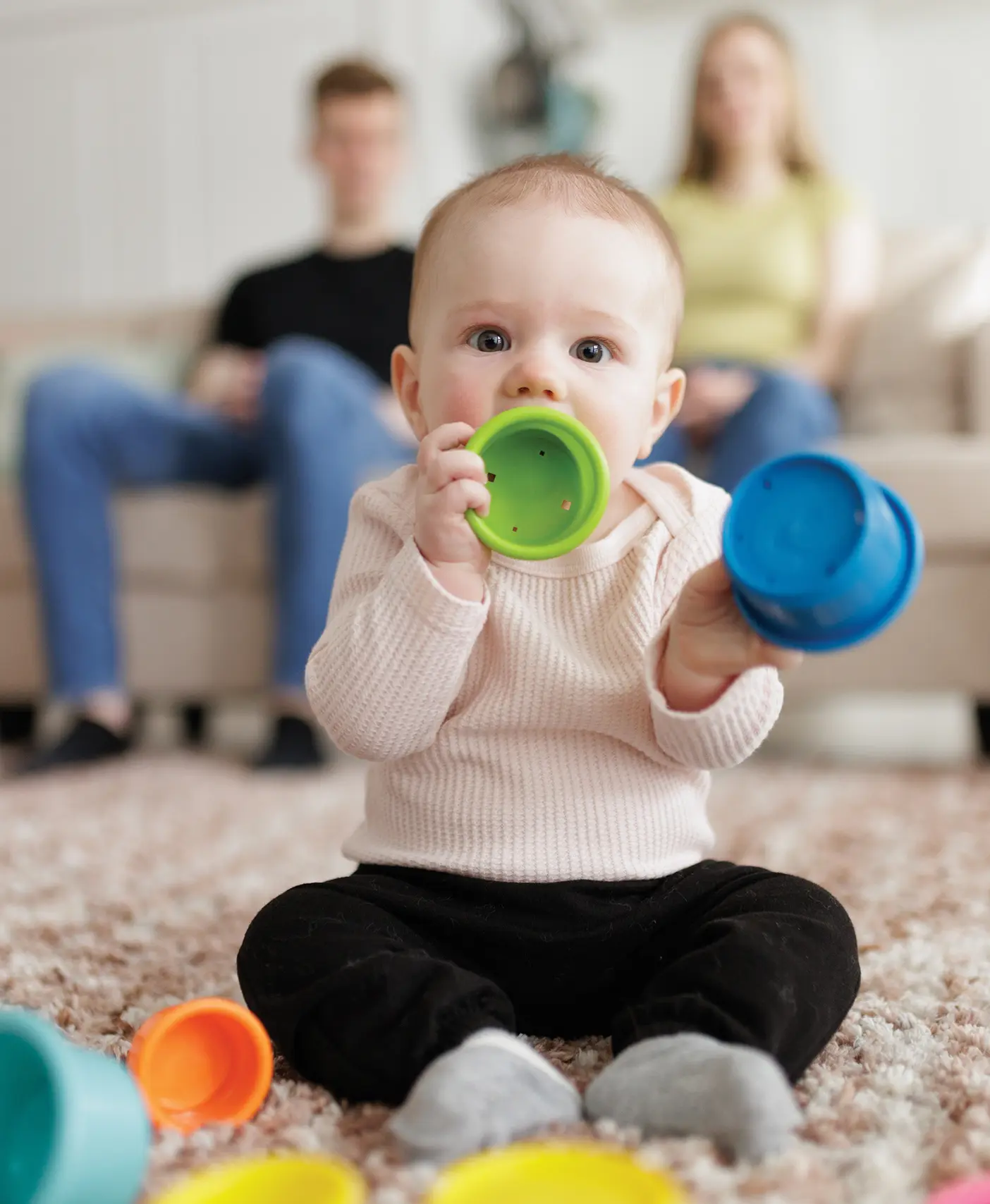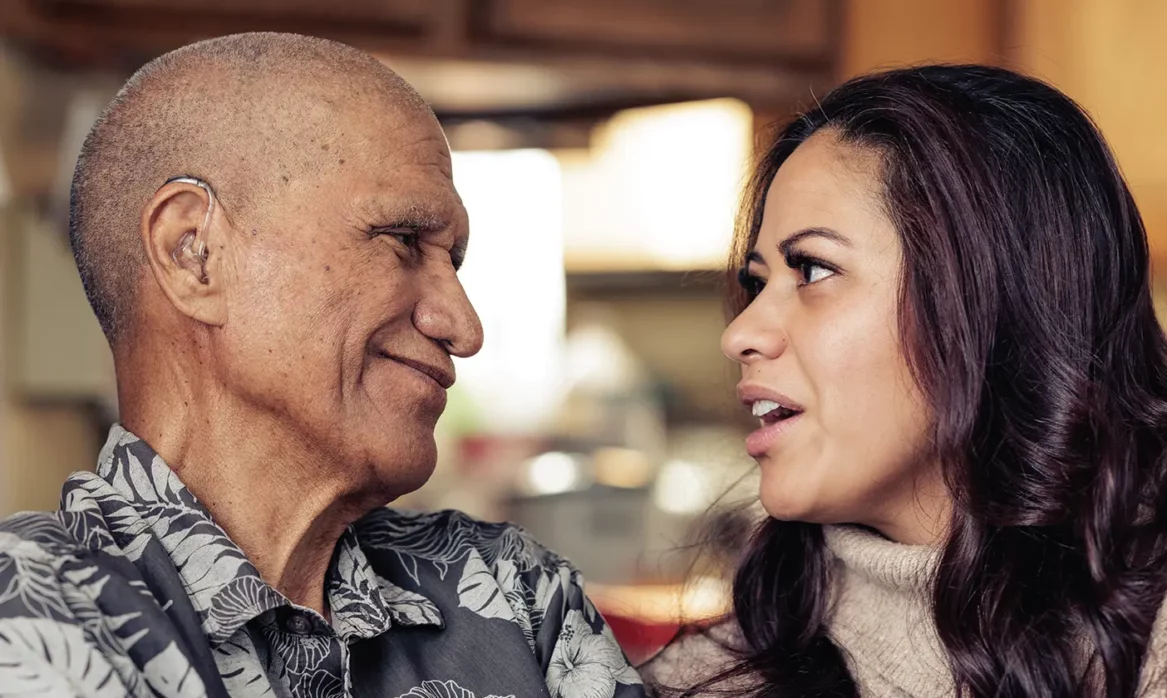Mindfulness can ease parental anxiety and strengthen family bonds.

Ask any new parent, and they’ll tell you that no amount of reading or advice can truly prepare you for that moment you welcome home your newborn. The weight of responsibility suddenly becomes very real.
But amid the whirlwind of heavy emotions, parents can find peace and emotional footing using a time-tested tool: mindfulness. According to research published in the Journal of Social and Personal Relationships by BYU School of Family Life professor Chelom Eastwood Leavitt (BS ’88, JD ’92, MS ’10), mindfulness can guide parents as they navigate this transition.
“When you’re mindful, you give yourself a little space to slow down and be aware of what you’re experiencing, both in your mind and your body,” says Leavitt. “First-time parents are dealing with lots of emotions, but the research shows that when mothers and fathers are mindful, they can alleviate themselves of the burden of fears and anxiety they’re facing.”
Leavitt says mindfulness is based on practices that, with repetition, can become healthy habits. “Mindfulness involves being attuned to your body and recognizing feelings of anxiety without self-shaming,” Leavitt says. Her research reveals that mindfulness can help expecting mothers alleviate the anxiety and fear associated with childbirth, leading to better outcomes, before and after giving birth. “Women who practice mindfulness experience less depression and better overall health,” she says.
And it’s not just mothers who benefit. Leavitt found that mindful fathers also contribute to healthier family dynamics.
To cultivate mindfulness Leavitt suggests intentional practices that expecting and new parents can use to strengthen their marital relationships and experience increased peace.
1. Be still.
In today’s fast-paced and busy world, Leavitt says it’s more important than ever to find moments each day to ponder and meditate. “The scriptures teach us to ‘be still and know that I am God’ (D&C 101:16),” she says. “For those transitioning to parenthood, take time each day, even for a few minutes, to create an environment where you can focus on the new spirit in your home and strengthen the bonds of your marriage.”
2. Take time to talk and to listen.
Communication can often take a backseat when a child is born. “Mindful people are able to deal with conflict and talk about it openly,” says Leavitt. “They pick up on cues from their spouse and say, ‘I’ve felt like we haven’t talked as much since the baby came.’ Mindful people are more apt to navigate ambiguity in a relationship.”
3. Pause before reacting.
Leavitt says one of the best ways to become more mindful is to take a pause before jumping to conclusions. “When you exercise your mind to give pause, the less reactive you’ll be,” she says. “That pause can give space for solutions to emerge, hearts to be more tender, and forgiveness to take place. All sorts of good things happen when we can slow down.”
4. Slow down.
Developing mindfulness is like building a muscle— it takes effort and time. Slowing down leads to greater connection and less stress in relationships. “When we’re mindful, we feel greater connection to our children, but also toward our spouse,” Leavitt says. “We can then give them our attention and be the best versions of ourselves.”












